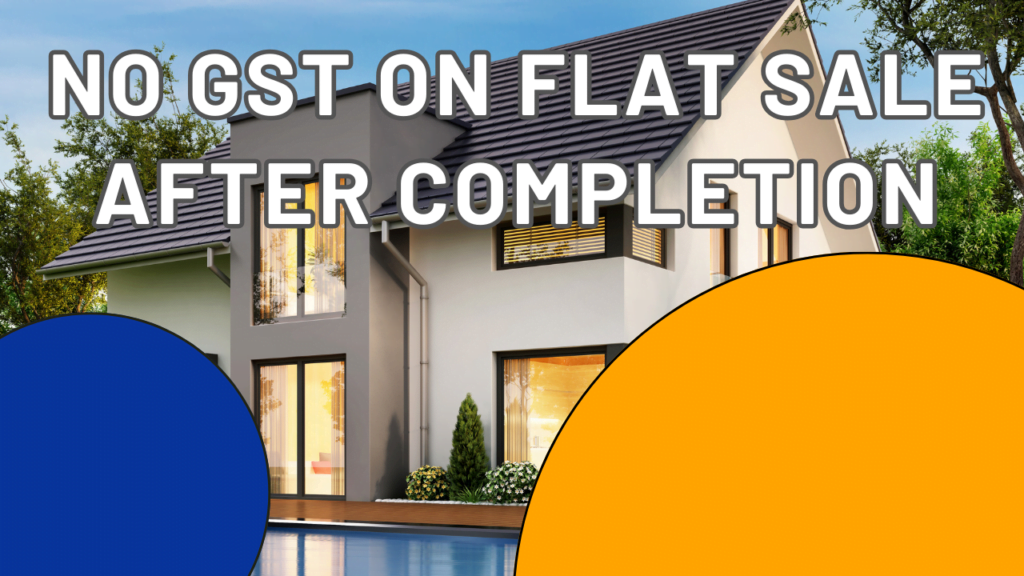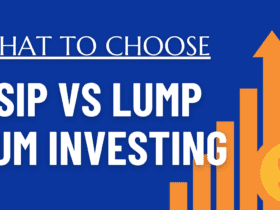Good luck with your decision to buy the house of which you dreamt of! But are you confused about what GST means and how GST is applicable on flat purchase? This post will guide you everything that you need to know about purchasing land and flat and the applicable GST rates on them.
GST on Different Property Purchases:
1. Sale or Purchase of Land: GST is exempted on sale and purchase of land. GST is not applicable as per GST Act.
2. Sale or Purchase of Flat: GST is not applicable on sale or/and purchase of completed flat. Ready to move or completed flat are those who have received a certificate of completion and are ready to occupy.
3. Purchase of under-construction property: Those flats which you purchase before completion and pay some amount agreed between you and your developer on the basis of progress. GST is applicable on this.
4. Commercial Property: GST is applicable to the purchase of shops, offices or any other non-residential properties.
Scenario and rate of GST varies and will be discussed below.
Understanding Related Costs:
Purchase of under-construction property (residential) is divided into two categories. The GST rate is applicable because you receive construction service which is a taxable service under GST Act.
| Type of real estate | GST Rate | Carpet Area | Price |
| Residential property affordable housing (under construction) | 1% | Up to 60 sq m in metro cities and 90 sq m in other cities | Up to Rs.45 lakhs charged by builder |
| Residential property other than affordable housing (under construction) | 5% | More than 60 sq m and 90 sq m | Pricing more than Rs. 45 lakhs |
| Construction services of Commercial Property | 12% | NA | It is commercial property |
| Land and ready to move | 0% | NA | NA |
Now, you know when to pay GST and don’t get fooled by any builder. You can also apply for a GST refund if paid any, after the cancellation of agreement between you and the builder. I have already posted a refund for an unregistered person which you can follow to file a GST refund if required.
Note that this GST rate is applicable on the projects started on or after 01.04.2019. Before 01.04.2019, it was 8% on affordable housing and 12% on other residential housing.
Effects on builders: they can not avail input tax credit on construction services of residential flats and have to pay 1% or 5% as applicable in cash only after collecting from the buyers.
You should not get confused with the renting of immovable property with the construction of commercial property. Both services have different HSN and different criteria. Read Full Clarity of GST on Renting any Property with FAQs

Reasons of GST on Property Purchase:
Transparency: In construction services, a variety of malpractices were happening and no money circulation records, and many other things. To bring transparency in the transaction and construction sector, the government implemented the GST and it also protects the buyers. As a buyer, you will get proper invoice and all progress status and now projects are mandatory to register under RERA of the respective state.
Important Considerations:
Stamp duty and registration fees are to be paid separately other than the GST part. So, the burden to pay other taxes is still there.
If you are buying a flat in an apartment, you know that you will have to pay monthly maintenance to the residential welfare association of your apartment. If this maintenance is more than 7500 rupees per month, you will be charged with GST of 18%. If it is less than 7500 rupees per month, no GST is applicable.
Your Residential Welfare Association is needed to take GST registration in this and they will need to pay GST after collecting from you. If RWA annual turnover crosses 20 lakh rupees, they need to take GST registration.
But, one condition is there, if RWA revenue crosses Rs. 20 lakh per year and monthly maintenance is less than 7500 rupees per month from each person, they don’t need to take registration.
Conclusion:
You know these expenses are separate compared to purchasing a flat. From this post, you know how much and what point of time you need to pay GST. At least from this guidance, you won’t fall in the trap of GST demand from your builder or developer.
Now, you’ve read this guide, you have more information to help you make smart choices and stay away from problems. Remember that GST rates depend on the type of the property you purchase or invest.
You can easily handle the real estate market and protect your interests if you know about GST rules and related costs. So, whether you’re trying to buy your dream home or making an investment in business real estate, this information will help you understand GST and make smart financial choices.










4 Comments
View Comments